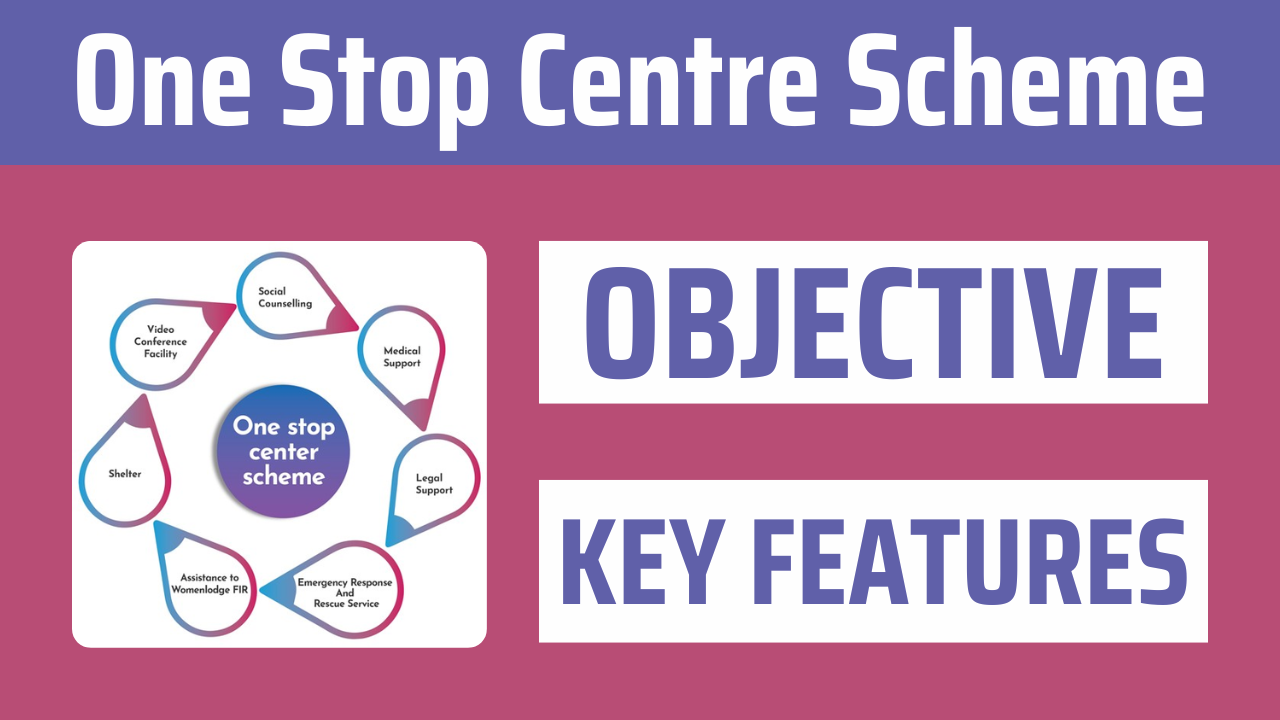In India, gender-based violence remains a significant issue, affecting millions of women across the country. Recognizing the need for a structured and effective response to such incidents, the Government of India launched the One Stop Centre (OSC) Scheme. This initiative aims to provide integrated support and assistance to women who have experienced violence in any form, ensuring their safety, rehabilitation, and empowerment.
The One Stop Centre Scheme was introduced by the Ministry of Women and Child Development (MWCD) under the Nirbhaya Fund in 2015. The scheme seeks to create a single-window facility that offers comprehensive services, including medical aid, legal assistance, counseling, and temporary shelter, to survivors of violence. By consolidating these services in one location, the OSC scheme enhances accessibility and efficiency, ensuring that survivors receive immediate and effective support.
With a strong emphasis on accessibility, the OSCs operate 24/7 and are established in various districts across India. These centers serve as a crucial resource for women facing physical, emotional, and economic abuse, ensuring that they receive timely interventions. In this article, we will explore the objectives, key features, services provided, implementation strategies, and the impact of the One Stop Centre Scheme.

Objectives of the One Stop Centre Scheme
The primary objectives of the One Stop Centre Scheme are:
- Providing Immediate Support – Ensuring that women affected by violence receive urgent medical, legal, and psychological assistance.
- Ensuring Safety and Rehabilitation – Offering temporary shelter and ensuring a safe environment for survivors.
- Facilitating Legal Aid – Assisting women in filing cases and navigating the judicial process.
- Creating Awareness – Spreading knowledge about legal rights, government policies, and available support systems.
- Strengthening Institutional Response – Enhancing coordination between law enforcement, medical professionals, and social services.
Key Features of the Scheme
- Single-Window Support: All necessary services, including legal, medical, counseling, and shelter, are provided under one roof.
- 24/7 Availability: The centers are operational round-the-clock to ensure immediate assistance.
- Collaboration with Stakeholders: The scheme works in coordination with police, hospitals, NGOs, and legal authorities to offer comprehensive support.
- Confidential and Sensitive Handling: Ensures that survivors receive care with dignity and respect, maintaining privacy at all times.
- Linkage with Other Government Schemes: Facilitates access to various social welfare programs for the long-term rehabilitation of survivors.
Services Provided Under the One Stop Centre Scheme
1. Medical Assistance
Victims of violence are given immediate medical aid, including first aid, medical examination, and necessary treatments. OSCs collaborate with hospitals to ensure that survivors receive quality healthcare.
2. Legal Aid and Support
Women receive guidance regarding their legal rights and the process of filing complaints. Lawyers are available at the centers to assist in preparing legal documents and representation in court if necessary.
3. Psychosocial Counseling
Trained counselors provide emotional and psychological support to survivors, helping them cope with trauma and regain confidence in their lives.
4. Temporary Shelter
For women in immediate danger, OSCs offer short-term accommodation in a safe and secure environment, ensuring their protection from further harm.
5. Police Assistance
The centers have direct coordination with local police stations, helping survivors in filing FIRs and ensuring swift legal action against offenders.
6. Rehabilitation and Reintegration
Women are supported in rebuilding their lives through vocational training and economic empowerment programs to help them become self-reliant.
Implementation and Operational Framework
The One Stop Centre Scheme is implemented at the district level, with each center functioning as a dedicated unit within hospitals or independent buildings. The MWCD, in collaboration with state governments, oversees the establishment and operation of these centers. The funding for OSCs is provided through the Nirbhaya Fund, ensuring sustained financial support for their functioning.
Each OSC is managed by a team that includes a Centre Administrator, Case Workers, Legal Counselors, Medical Professionals, and Police Officials. These professionals work together to offer an integrated support system for survivors.
Impact and Challenges
Impact of the Scheme
The One Stop Centre Scheme has significantly impacted the lives of many women across India:
- Increased Accessibility: Women in remote and rural areas now have access to essential services under one roof.
- Legal Empowerment: Survivors are now better informed about their rights and legal procedures.
- Enhanced Coordination: Improved collaboration between various stakeholders, including police, medical staff, and legal professionals, ensures efficient case handling.
Challenges and Areas for Improvement
Despite its success, the OSC scheme faces several challenges:
- Lack of Awareness: Many women remain unaware of the availability of these centers and their services.
- Operational Gaps: Some centers face staffing shortages and inadequate infrastructure.
- Social Stigma: Many survivors hesitate to seek help due to fear of societal judgment and victim-blaming.
- Limited Funding: While the Nirbhaya Fund supports the scheme, additional financial support is required for expansion and better infrastructure.